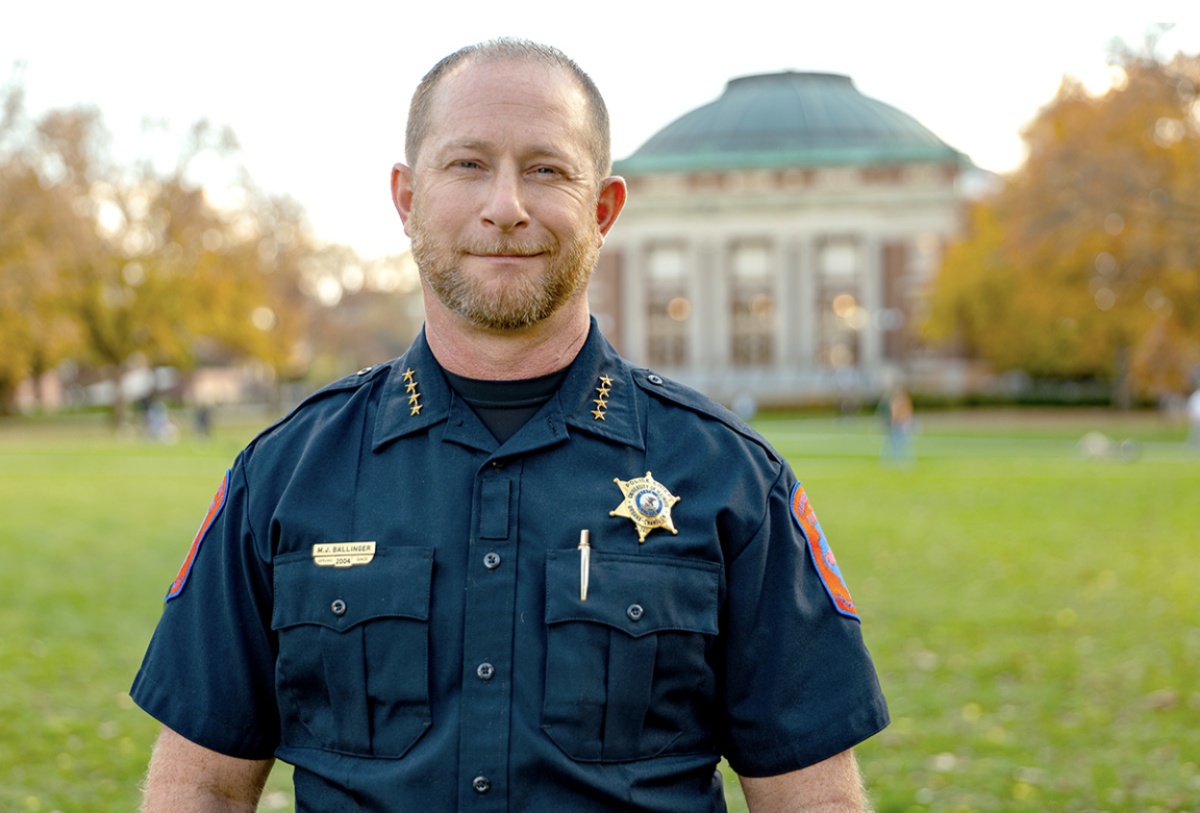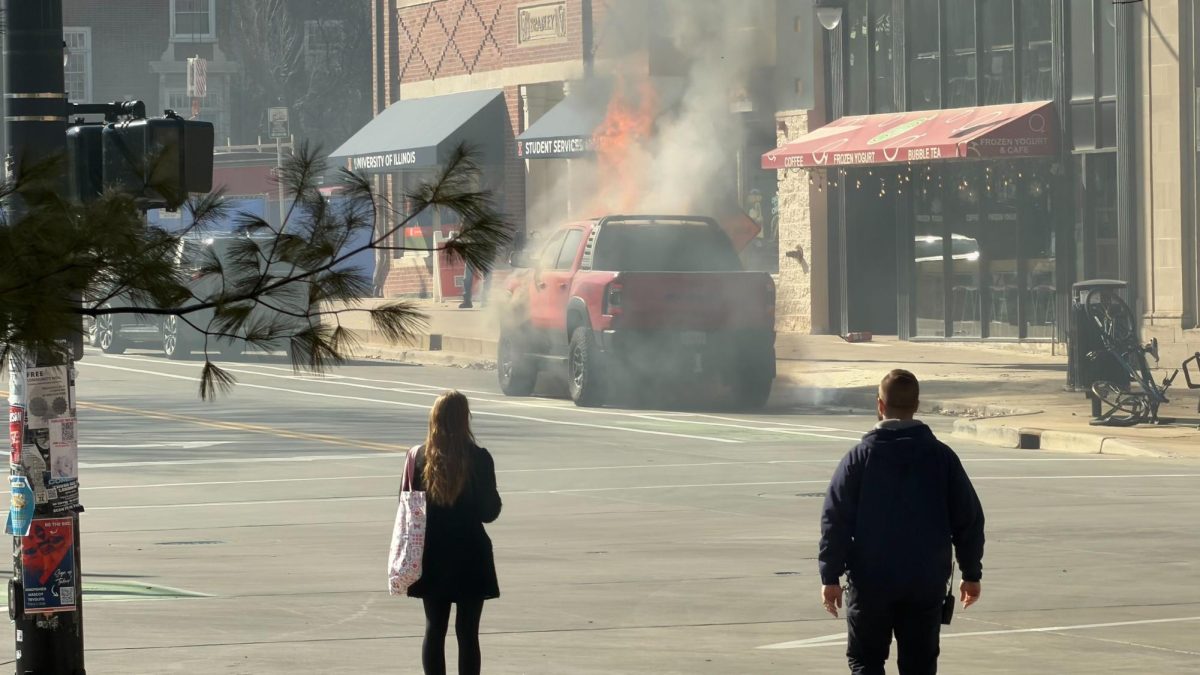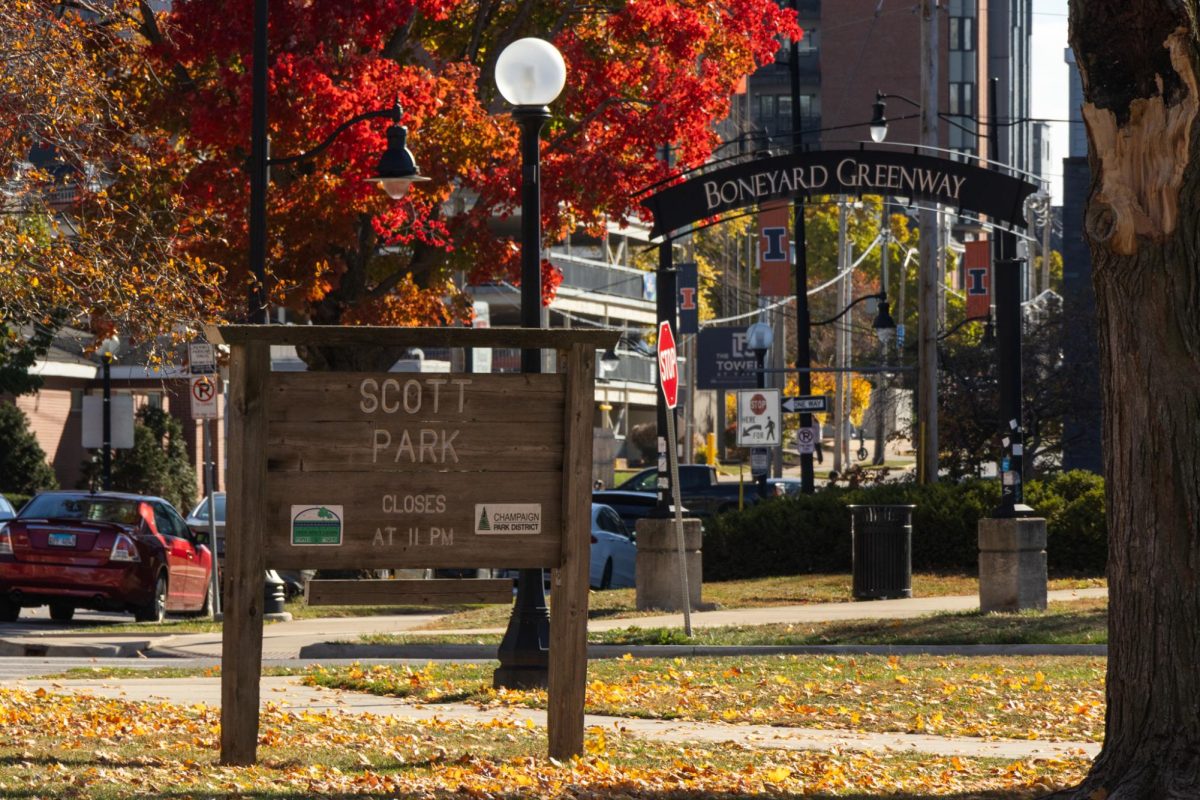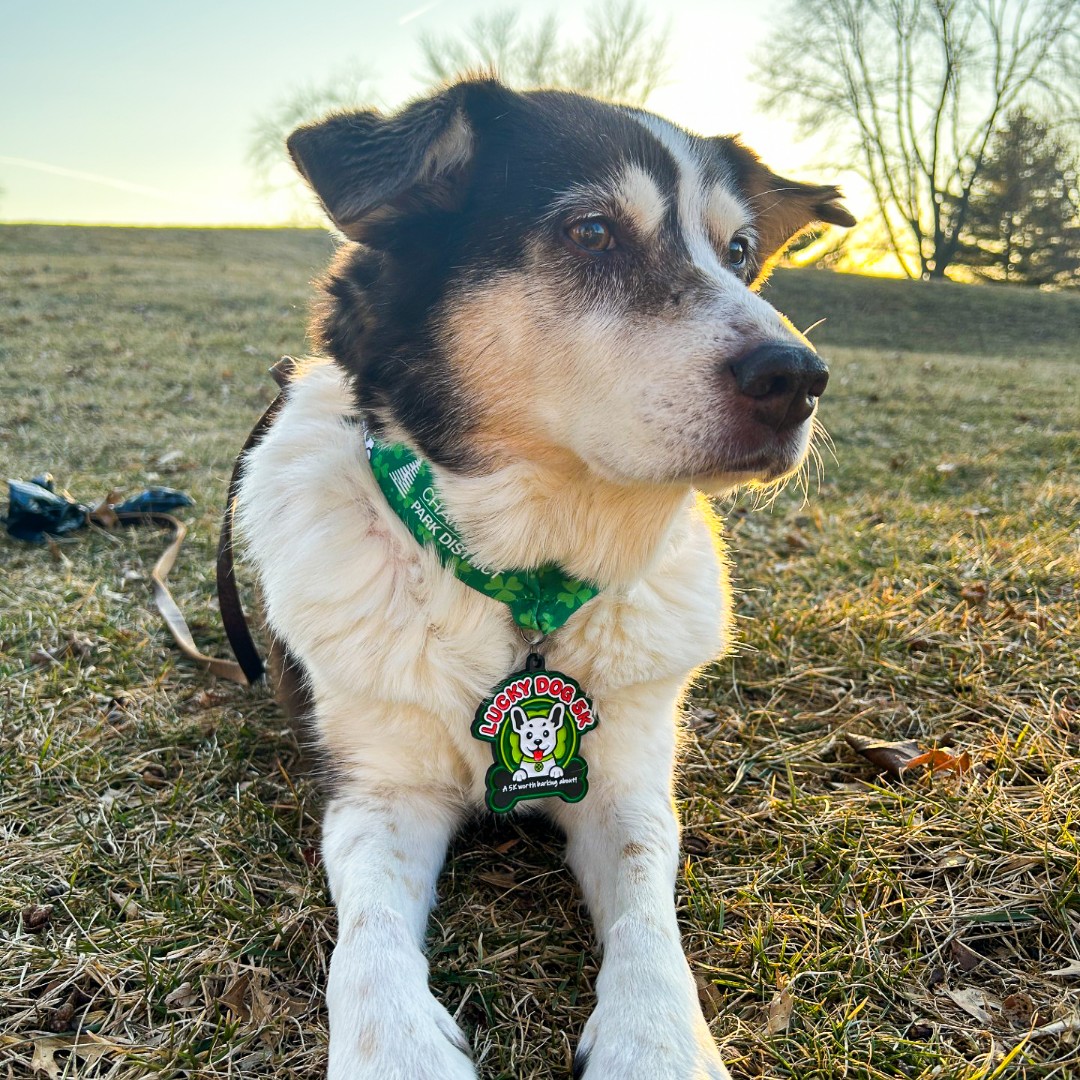The University officially appointed Matt Ballinger as the next executive director of public safety and chief of police on Thursday, a role he has been fulfilling on an interim basis since October 2023.
Ballinger joined the Universityʼs police force in 2004. Over the past two decades, he has amassed extensive experience across various leadership ranks, special units and roles, including METRO SWAT commander, field training instructor and supervisor for the county’s Street Crimes Task Force. Before his work in law enforcement, he served in the U.S. Army 3rd Ranger Battalion.
“Chief Ballinger has clearly demonstrated a strong commitment to our university,” said Mike DeLorenzo, vice chancellor for administration and operations. “His detailed knowledge and dedication to public engagement helps him advocate for the safety needs of our entire university community.”
In light of his new role, Ballinger shares insights on his career journey, the challenges that lay ahead and his vision for enhancing community safety and engagement.
Get The Daily Illini in your inbox!
This interview has been edited for length and clarity.
The Daily Illini: How do you feel about transitioning from the interim role to the official position? What does it mean to you personally and professionally, and how has the transition influenced your approach?
Ballinger: I think it seems to have been a fairly easy transition, because I took the interim role very seriously, as if I were the chief at the time. So for me, not much has changed. But when you’re in that interim role, you don’t always get to just make changes, nor would you want to, because if you’re not the one that gets the permanent spot, you’ve created some chaos that other people have to change. But now you can move things forward as far as what you’d like to do professionally.
When I started my career as an officer, I never thought it would be at this level. I’ve continued to try and better myself throughout my years, and this is where I landed. Professionally, itʼs very, very interesting and kind of surreal, to be honest. For myself, I’m still grasping where I’m at. Like any job, you continue to get better and look at things you’re doing well, could have done better, or missed, and aim to improve. I learned to ask people around for input and try to become better. That’s a transitioning mindset.
DI: What are your most immediate objectives for the department? What do you see as the biggest remaining challenges facing the University in terms of public safety?
Ballinger: The most immediate needs are much of what we’ve been doing well. We have grown so much over the past three to four years, thereʼs been a lot of turnover. Weʼve got some young leaders, weʼre coaching them, theyʼre doing great. We’re looking at all the programs we added, our community outreach, our social workers, our therapy, our canines, our technology and emergency management. We took on Campustown, that was a large commitment, and that increased our call volume, close to double what we’re used to. So weʼve grown exponentially, and weʼre trying to catch up, administration-wise. Weʼre also looking to say, “Okay, weʼve done this, now letʼs examine it and hone in on it. How do we become better? How do we take it to the next level?”
I think the same challenges we have faced will always be there. Weʼre always trying to protect the community from the criminal element with the service, trying to prevent crime, solve crime and get ahead of those trends.
Another thing that we ran into was how COVID-19 really shut down a lot of communication. The students felt it; we felt it too. So getting back out there face to face and building relationships, everybodyʼs extremely busy trying to play catch up, trying to be involved and have that outreach. Thatʼs going to be our top priority, reestablishing those lines.
DI: Can you share more about your background in law enforcement, and how all of your previous experiences have prepared you for this role?
Ballinger: I mean, when I was 17, I joined the military. When you’re jumping out of planes before youʼre 18, that kind of defines who you are. I was in the 3rd Ranger Battalion as part of Joint Special Operations. So I was around a lot of leaders and people that helped me launch into what I am today — that really redefined who I was and my limitations both mentally and physically, and all of that came back up later.
I was 30 when I started to be a police officer. In 2004, I went through the Police Training Institute. A lot of those skills I learned earlier in life came back to law enforcement. There are a lot of similarities, like chain of command, the leadership aspect; and some of those traits and skills I learned earlier helped me transition as well. As a young officer, I started doing patrol and kind of joined all the units along the way — anywhere from bicycle police to being a part of the honor guard to field training officer, to just tons of classes and building experience and trying to get that training. I’m lucky that this department has afforded me the opportunity to get that type of training.
I became a sergeant. As University police, we have connections with housing, we teach RAs who speak to Greek houses. All those interactions in our policing led me further up the chain. And then as I got promoted, I went over to the joint county Street Crimes Task Force from 2015-2019 as a supervisor. That’s where we were targeting some of the people that were doing the most harm to the communities with gun violence. That was a lot of experience in that type of crime investigation and higher profile cases. It was very rewarding to help make the community safer by going after the people that were doing the harm.
After that, I was promoted to lieutenant. I came back to the University. Now you’re changing the administrative rules, looking at policies, guiding things. You’re not so much the one doing the stopping now. You’re trying to guide the people in the posts below you on how to do the job and be the next to replace you when you leave.
All those experiences — they’re just so many in so many classes. I spent a large amount of my time on a joint county SWAT team, I held most positions on that. And then there’s the METRO SWAT team, board of the commanders, so before I came out of that and got promoted up to assistant chief, I had a lot of experience there on how to handle crises. Getting all your high-risk search warrants, your barricades, your hostage rescue, your response to school shooters. A lot of what I learned during that time, I was able to come back and help teach our people.
That was a big part of my career coming into this new role, and the administration side has catapulted me into something I wasn’t exposed to before— getting out there and meeting people on all levels, faculty, staff, students, that just wasn’t where my job title landed me before. Now that I’m in these roles, it has been extremely rewarding to go out and make those connections. During my interim role, that’s what I focused on: going out and meeting folks. So I’m going to continue to do that and I think that’s very critical and important for our department.
DI: What role do you believe the campus community and all the people that you’re meeting should play in maintaining a secure environment and helping public safety?
Ballinger: They’re crucial. That’s literally what community policing is about, getting their input, their buy-in, things that they find, things we should have addressed or how we address it and getting them involved in the solution. You can’t just believe that, as the police department, you know everything or what’s best. It’s about asking the community, “Well, what do you think? What is your opinion?,”and having those conversations. And then communicating properly why we’re doing what we’re doing to make people safe, why we believe this is a safety risk. It’s absolutely crucial to have that.
DI: Was there anything that initially inspired you to join the military or pursue a career in law enforcement?
Ballinger: Ah, let’s see, I always had an affinity for military books and stuff like that. When I went to go sign up, actually, I didn’t know what a ranger was. They showed me a funny video of a guy riding around on a little Zodiac craft. I’m like, “That’s cool. I’d like to do that and jump out of planes.” So, I was way in over my head. I had no clue what I was getting into.
I wasn’t sure what I wanted to do with my life; I was young. I was looking for something to latch onto that interested me, and I had no idea what that would do for me. When I was 30, looking at law enforcement, I’d been doing trades for five to seven years. And so I was looking for something different, with a retirement, the type of same service as the military. So I did a ride-along and I was like, “Wow, this is really cool, this seems fun.”
But when you get into being a police officer, it’s one of those things where you can never anticipate the impact that has to yourself, to your family, to those that you do help. You just don’t know until you’re in law enforcement. So getting into it was fairly naive, and that was my military career. But down the road, you’re definitely able to see the impact and what you did, helping people. That’s a great feeling to have.
DI: How would you describe your leadership style, and how do you think it will benefit the Department of Public Safety at the University?
Ballinger: I think it could be many. I kind of always go with servant leadership as my fallback. Treat folks like you want them to treat others, both inside and outside where you work, if you want them to replicate. For me, it’s about trying to work with your people, be there for their needs and what you can do for them, as opposed to just dictating. I think that’s critical for any good organization, some type of leadership that cares about their people enough to have those conversations, communicate their intents and be approachable.
DI: Do you see the role of campus police evolving in any other way in the next few years?
Ballinger: I think there’s going to be a lot of changes because technology is moving so quickly. Law enforcement is no different. There’s so many new initiatives; people are starting to think outside the box of what traditional law enforcement used to be. I can’t really anticipate some of those new things, but we’re forward-thinking and will look at those but properly vet them, because a lot of new initiatives sometimes aren’t very well crafted. We’ll go in measured steps with new stuff.
Technology has been extremely helpful for us, like our ALPRs (Automated License Plate Readers), cameras, those are all helping us identify and solve crimes, clear up cases, which is good to take the people that are trying to harm the community off the street, and then hold them accountable. There’s gunshot detection, there’s a lot of stuff out there technology-wise that can be of assistance to help us keep the campus and the community safe.
DI: Finally, what message would you like to convey to the students, faculty and staff at the University about their role in campus safety?
Ballinger: Please feel free to approach us, and if you have something that you see or feel is important, or dangerous, or could be better, our ears are open. We make ourselves available at several different venues. If you see me walking on the quad, my name is Matt, feel free to come up and say hi, and chat it up, and use those avenues when we’re out there. Or if you want to come by, I always have an open door.






